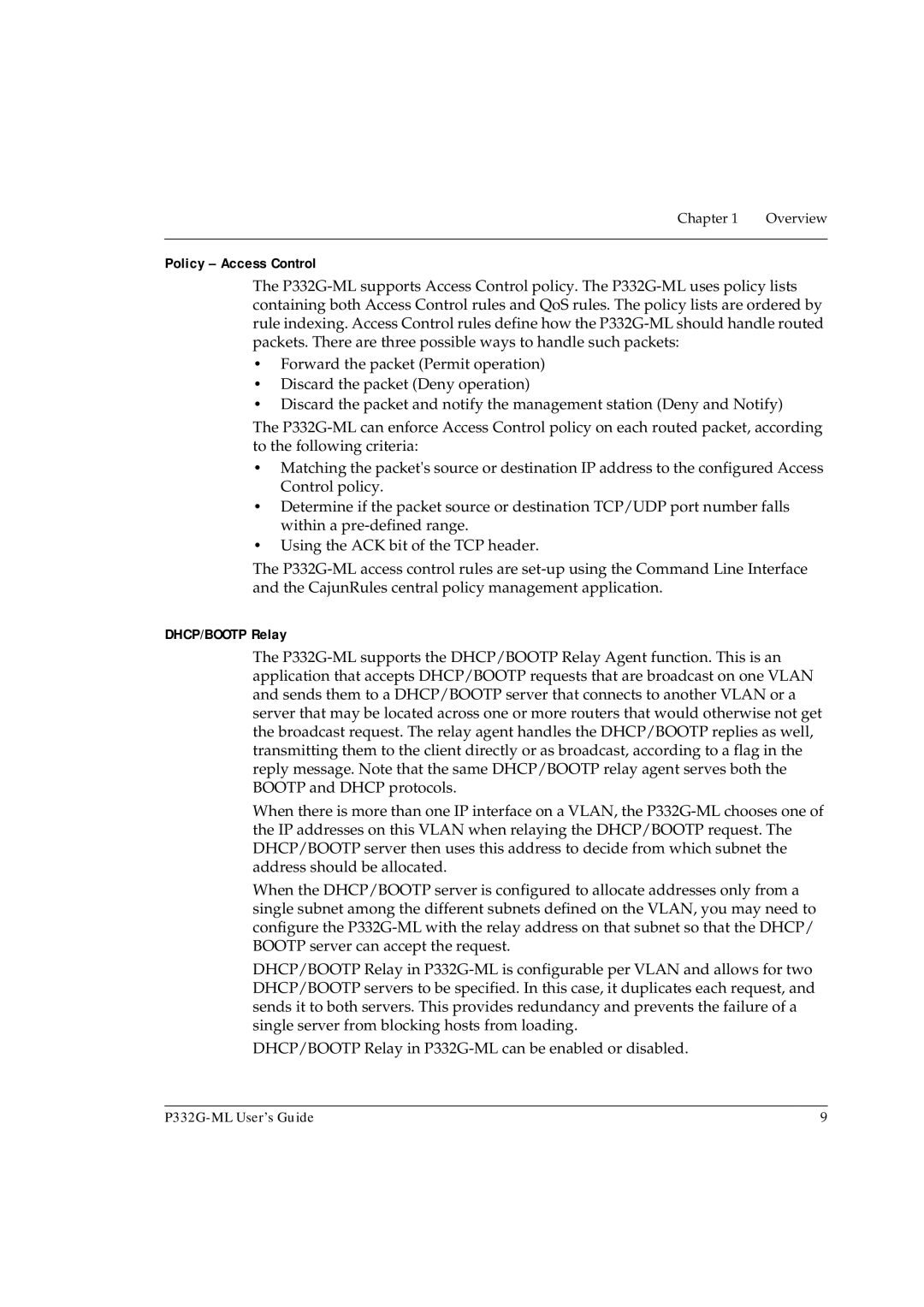Chapter 1 | Overview |
|
|
Policy – Access Control
The
•Forward the packet (Permit operation)
•Discard the packet (Deny operation)
•Discard the packet and notify the management station (Deny and Notify)
The
•Matching the packet's source or destination IP address to the configured Access Control policy.
•Determine if the packet source or destination TCP/UDP port number falls within a
•Using the ACK bit of the TCP header.
The
DHCP/BOOTP Relay
The
When there is more than one IP interface on a VLAN, the
When the DHCP/BOOTP server is configured to allocate addresses only from a single subnet among the different subnets defined on the VLAN, you may need to configure the
DHCP/BOOTP Relay in
DHCP/BOOTP Relay in
9 |
